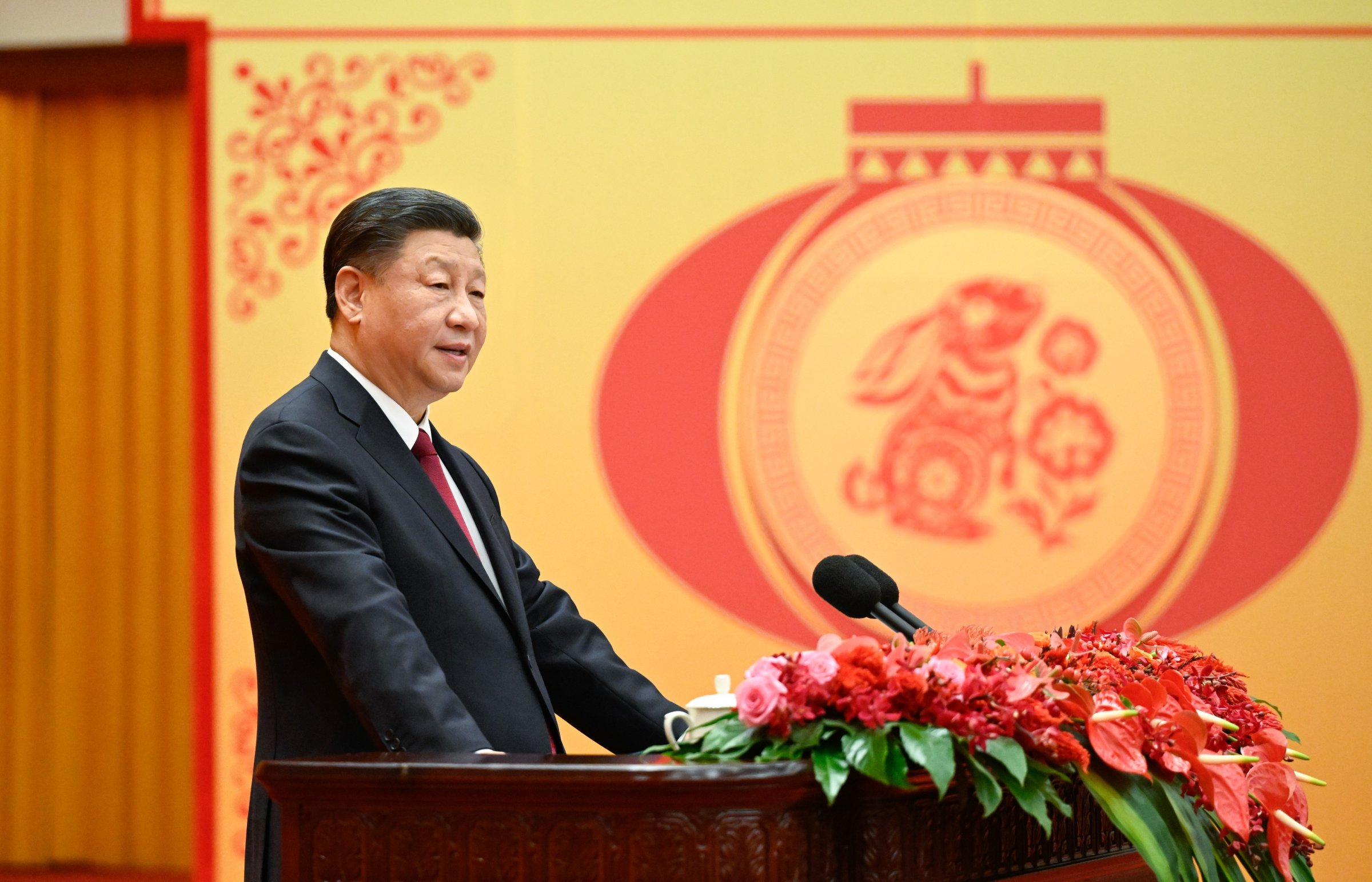
China’s successful development shows there is another way to modernize, President Xi Jinping said, rejecting any need to “westernize” and doubling down on his goals of increased self reliance and improved social justice.
China must work to create a path to modernization that is more efficient than capitalism, Xi told top officials this week according to the state-run Xinhua news agency report. Innovation must be placed in a prominent position in overall national development and there should be better balance between efficiency and equity, Xi said.
The core of achieving these goal lies with sticking to the leadership of the Communist Party, Xi said, adding that this will decide the “ultimate success or failure” of China’s efforts to develop.
Read More: The World’s Future Is in the Hands of Chinese President Xi Jinping
The comments reinforce Xi’s pledge for self-reliance in the area of key technologies as China faces growing efforts by the U.S. to contain its growth, and also underscore his push to curb inequality as part of a drive for “common prosperity”.
In his report to the Party congress in October, Xi explained that Chinese-style modernization encompasses five aspects including common prosperity, harmonious co-existence of people and nature, and peaceful development.
“Chinese-style modernization breaks the myth of ‘modernization equals Westernization,’” Xi said in the speech on Tuesday, explaining the idea which he has spoken about with increasing frequency in recent years, including 11 mentions in his speech to the congress. “Experience has proved that Chinese-style modernization is feasible and stable, and it is the only correct path for building a strong country and rejuvenating the nation.”
Read More: U.S. General’s Prediction of War With China ‘in 2025’ Risks Turning Worst Fears Into Reality
The remarks were one of the first major policy speeches Xi has given since he secured a third term as leader late in 2022, and set out his broad vision for both China and the Communist Party in the short and medium term.
Party Control
In addition to calling for greater efforts to boost the economy now, Xi explained to much of the nation’s senior leadership the future direction of China and emphasized how the Party must continue to be in control.
The speech was attended by all the other members of the Politburo, the leadership of the military, new Central Committee members and also provincial leaders and ministers. China’s government is now preparing for the annual parliamentary meeting which starts in less than a month in Beijing, where it will present its plans for how the country can move past the disruption of last year and return the economy to growth.
U.S. President Joe Biden made similar comments about strengthening domestic industries in his State of the Union speech on Tuesday night, touting new investments made by his government to counter China’s ambitions.
Read More: ‘We Will Act to Protect Our Country’: Biden Addresses China During State of the Union
“We are investing to make America strong. Investing in American innovation, in industries that will define the future, and that China’s government is intent on dominating,” Biden said. “We’re in the strongest position in decades to compete with China or anyone else in the world,” he said.
Biden added autocracies have grown weaker over the past two years while democracies have grown stronger, calling out Xi directly by implying no world leader would want to trade places with the Chinese president.
Tensions between the U.S. and China have escalated in the past week after the U.S. detected and shot down an alleged Chinese spy balloon. China has denied it was an espionage device, saying it was conducting weather research.
Read More: China Has an Extensive Satellite Network. Here’s Why It Would Use a Balloon to Spy
Economic activity in China has shown signs of a pickup as COVID infection look to have peaked after Beijing’s abrupt ending of the zero-COVID strategy, with in-person service sectors rebounding robustly.
However, the economic recovery remains fragile given the continued slump in the property market and falling exports, while the strength and sustainability of any improvement in consumption is uncertain.
In the short-term, China must strive to achieve an overall improvement in economic activity this year, Xi said in the speech, adding that more effort should be made to guide business entities to strengthen confidence and stabilize social expectations. The country needs to better coordinate COVID prevention and control and economic and social development, and better balance development and security, he said.
Read More: China’s Stunning U-Turn on Zero-COVID Goes From Suffocating Control to Callous Inaction
Those concerns about the economy are similar to comments made by Premier Li Keqiang at a separate meeting Tuesday, were he called for efforts to consolidate and expand the economic recovery trend. China’s economic growth stabilized at the end of last year and picked up at the beginning of this year, according to Li.
Consumption, which has been the main driving force of the economy for many years, has now stopped falling and increased significantly in January, he said.
However, there are still many risks, challenges and uncertainties for the economy, Li said, noting demand is still insufficient and companies, especially small firms and those in the consumer service industry, are still facing difficulties.
More Must-Reads from TIME
- Breaking Down the 2024 Election Calendar
- How Nayib Bukele’s ‘Iron Fist’ Has Transformed El Salvador
- What if Ultra-Processed Foods Aren’t as Bad as You Think?
- How Ukraine Beat Russia in the Battle of the Black Sea
- Long COVID Looks Different in Kids
- How Project 2025 Would Jeopardize Americans’ Health
- What a $129 Frying Pan Says About America’s Eating Habits
- The 32 Most Anticipated Books of Fall 2024
Contact us at letters@time.com